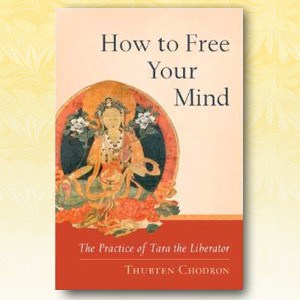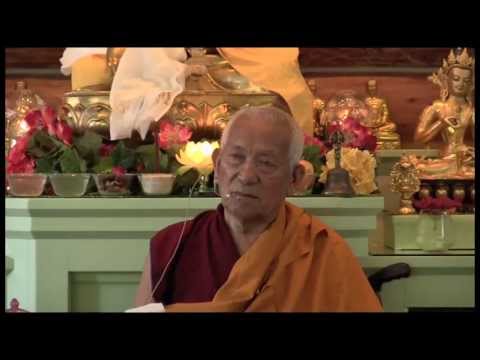Chapter 1: Verses 1-8
Part of a series of teachings on Aryadeva's 400 Stanzas on the Middle Way given on an annual basis by Geshe Yeshe Thabkhe from 2013-2017.
Motivation from Chandrakirti
- Taking advantage of leisure and opportunity of the precious human life to practice the Dharma and attain good rebirth, liberation from samsara, or full awakening
- Three levels of practitioners: cultivating ethical conduct, seeking to be free from cyclic existence, seeking to attain full buddhahood
- The importance of developing and perfecting the practice of ethical conduct by abstaining from ten non-virtuous deeds and engaging in non-violence
Introduction into Aryadeva’s 400 Stanzas on the Middle Way aimed at practitioners of great and medium capacity
- How Chapters 1 through 4 will refute the four erroneous beliefs that things are permanent, pleasurable, pure, and having an inherent nature
- How we mistake continuity of phenomena for their static and permanent nature
Mindfulness of death and meditation on impermanence
- Being alive is what leads us towards death
- Practicing ethical conduct frees us from the fear of death
- We should be mindful of death because it is common to all
- Regardless of medical treatment we have for sickness and aging, we cannot cure death
- Although time of death is uncertain, we should be mindful of death
Geshe Yeshe Thabkhe
Geshe Yeshe Thabkhe was born in 1930 in Lhokha, Central Tibet and became a monk at the age of 13. After completing his studies at Drepung Loseling Monastery in 1969, he was awarded Geshe Lharampa, the highest degree in the Geluk School of Tibetan Buddhism. He is an emeritus professor at the Central Institute of Higher Tibetan Studies and an eminent scholar of both Madhyamaka and Indian Buddhist studies. His works include Hindi translations of The Essence of Good Explanation of Definitive and Interpretable Meanings by Lama Tsongkhapa and Kamalasila's commentary on the Rice Seedling Sutra. His own commentary, The Rice Seedling Sutra: Buddha’s Teachings on Dependent Arising, was translated into English by Joshua and Diana Cutler and published by Wisdom Publications. Geshela has facilitated many research works, such as a complete translation of Tsongkhapa’s The Great Treatise on the Stages of the Path to Enlightenment, a major project undertaken by the Tibetan Buddhist Learning Center in New Jersey where he teaches regularly.


